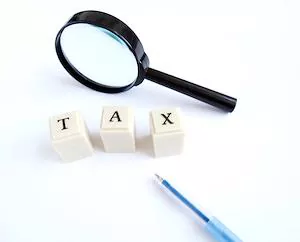Tax Reform: Amendment to the Valued Added Tax Law – Digital Services
The Government sent a tax reform bill to the Argentine Congress with modifications to different laws, including the Law on Value Added Tax.

I. Introduction
Valued Added Tax Law (“VAT” or “VAT Law”) establishes the taxation of the provision of digital services rendered abroad whose use or effective exploitation is carried out in Argentina as long as the customer is subject to the tax for other taxable events and a registered taxpayer. Thus, the majority of the digital services are not taxable by VAT.
The bill of law adds a new taxable event that includes the provision of digital services as long as the customer is not subject to tax for other taxable events and does not assume the quality of registered taxpayer. If an intermediary intervenes in the payment, it will assume the nature of agent of reverse withholding.
Additionally, the bill of law adds a mechanism for the devolution of tax credits originated by the purchase of capital assets to reduce the current wait period and foster investment.
II. Principal amendments
a) Digital services
Title II of the aforementioned draft modifies Article 1 of the Law on Value Added Tax and introduces a new taxable event related to the provision of digital services by individuals domiciled abroad whose use or effective exploitation is carried out in Argentina, as long as the customer is not subject to the tax for other taxable events and does not assume the quality of registered taxpayer.
In this respect, a definition of the concept of digital services is introduced as subparagraph m of paragraph 21 of subparagraph e of Article 3. Digital services will be understood, whatever the device used for download, display or use is, as those carried out through the Internet or any adaptation or application of protocols, platforms or technology used by the Internet or other network through which equivalent services are provided that, by their nature, are basically computerized and require minimum human intervention. Various cases are also established in which digital services are considered.
It is also established that, in the case of digital services included in the second paragraph of subparagraph b) and subparagraph c) of Article 3, it will be presumed, unless proof to the contrary, that the effective use or exploitation is carried out in the jurisdiction where the following assumptions are verified:
a. Services received through the use of mobile phones: in the country identified by the mobile phone code of the SIM card.
b. In the event of services received through other devices: in the country of the IP address of the electronic devices of the receiver of the service and of its Internet service provider. The unique numerical identifier formed by binary values assigned to an electronic device is considered an IP address.
With respect to subparagraph e) of Article 3, it will be presumed, without admitting proof to the contrary that there is effective use or exploitation in Argentina when finding:
a. The IP address of the device used by the customer or SIM card country code, as specified above;
b. The billing address of the client; or
c. The bank account used for the payment, the billing address of the client that the bank owns or the financial institution issuing the credit or debit card with which the payment is made.
The taxable event in the case of provision of digital services arises at the moment in which the benefit ends or in the total or partial payment, whichever is earlier. The resulting tax will be borne by the borrower. If an intermediary intervenes in the payment, it will assume the nature of agent of reverse withholding.
b) Tax credit refund
On the other hand, it establishes that the tax credits originated in the purchase, construction, manufacture or definitive importation of capital assets -excepting automobiles- that after 6 consecutive fiscal periods, counted from the one in which its computation resulted, created a balance in favor will be refunded as established by the regulations.
The refund can also be accessible in cases where the tax has been invoiced to the applicants originated in the aforementioned operations to the extent that said assets are aimed to exports, activities, operations and/or services that receive equal treatment. The regime will not apply when the capital assets do not integrate the taxpayers’ worth except situations of acts of God or force majeure.
For the purposes of this refund, Value Added Tax corresponding to purchases, constructions, fabrications, elaborations and/or final imports of assets, will be charged against the fiscal debits once the remaining tax credits related to the taxable activity have been computed.
For the party responsible, the refund will have a definitive nature as long as the refunded sums have application:
1. Regarding the operations taxed by the tax in the domestic market, the amounts duly filed resulting from the differences between the debits and the remaining fiscal credits.
2. Regarding exports, the amounts that they would have been entitled to recover for the assets that motivated the regulated refund.
Once 60 fiscal periods have elapsed from the moment immediately following the refund, in which the sums perceived would not have had the aforementioned application, the responsible party must reimburse the surplus not applied in the way and term established by the regulations with the compensatory interest.
This insight is a brief comment on legal news in Argentina; it does not purport to be an exhaustive analysis or to provide legal advice.